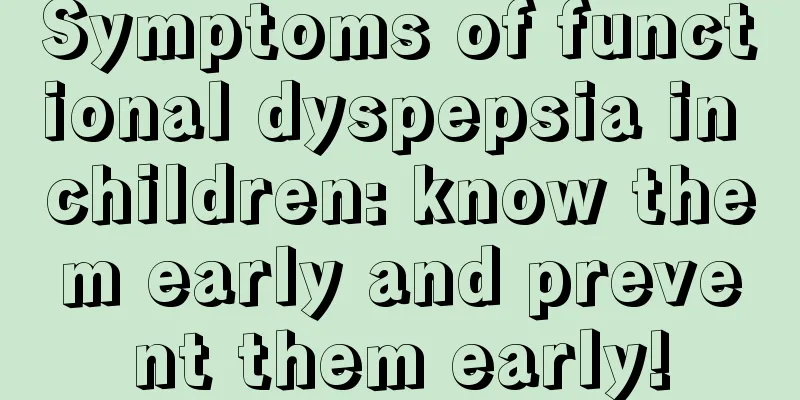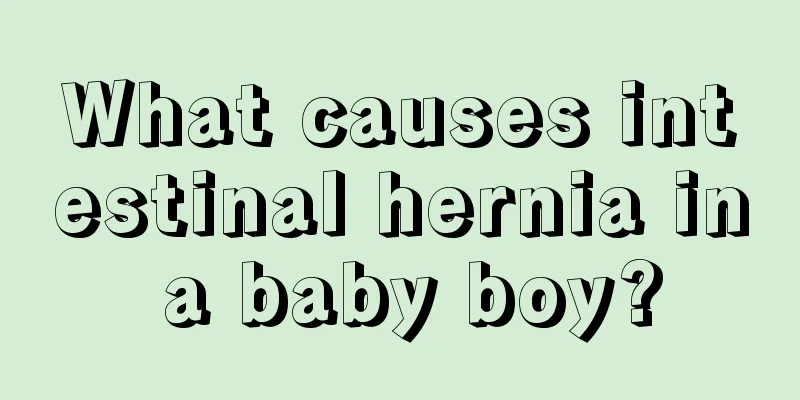Symptoms of functional dyspepsia in children: know them early and prevent them early!

|
Children have relatively poor resistance and weak digestive function, so they are very easy to get diseases. For example, functional dyspepsia in children is a common disease. Children with this disease will have a series of symptoms, and parents need to understand these symptoms. 1. Dysmotility-like dyspepsia: The main symptoms of this type of patients are abdominal distension, early satiety, and belching. Symptoms often worsen after eating. Overeating can cause abdominal pain, nausea, and even vomiting. Dynamic examinations show that approximately 50% to 60% of patients have proximal and distal gastric contraction and relaxation disorders. 2. The prominent symptoms of reflux-like indigestion are retrosternal pain, heartburn, and reflux. Endoscopic examination did not reveal esophagitis, but 24-hour pH monitoring revealed gastroesophageal acid reflux in some patients. For patients without acid reflux, the occurrence of such symptoms is believed to be related to increased sensitivity of the esophagus to acid. 3. The main manifestations of ulcer-like dyspepsia are the same as those of duodenal ulcer, including pain at night and during hunger, which can be relieved by eating or taking antacids. It may be accompanied by acid reflux and heartburn in a small number of patients. The symptoms are chronic and cyclical. Endoscopic examination revealed no ulcers or erosive inflammation. 4. Non-specific dyspepsia: Indigestion symptoms that cannot be classified into the above types are often accompanied by irritable bowel syndrome. However, with the exception of reflux dyspepsia, the other classifications have no important clinical significance. Many patients do not fall into more than one subtype; moreover, this classification does not correlate with pathophysiologic disturbances or clinical outcomes. For example, the incidence of gastroparesis in patients with dyspepsia with motility disorder subtype is not higher than that in patients with other subtypes; the efficacy of prokinetic drugs in them is not necessarily better than that in patients with other subtypes. However, the incidence of gastroesophageal reflux in patients with reflux subtype dyspepsia is indeed higher than that in patients with other subtypes, and the anti-reflux treatment effect is better. |
<<: Symptoms and treatment of intestinal spasms in children, these measures must be understood
>>: What causes phimosis in children? Let you know the real situation
Recommend
Can a four-month-old baby eat watermelon if he gets angry?
We all know that watermelon is a great summer foo...
What causes uneven skin tone on a child's face?
What causes uneven skin tone on children’s faces?...
Fetal umbilical cord blood flow test results
Everyone knows that nowadays pregnant women have ...
What causes headaches in children?
If a child's head is stimulated by physical o...
Education of a one and a half year old baby
Baby education is the topic that parents pay most...
How to extract a child's tooth
After birth, children begin to develop gradually ...
What to do if baby has red spots on face
For infants, since their skin is very smooth and ...
What are the height and weight standards for 12-year-old children?
Height and weight are extremely important for gro...
What should I do if my newborn has white spots on his face?
Many parents report that their newborns have whit...
Baby recipes home cooking
Our own babies have started to eat complementary ...
The manifestations of developmental delay in children, mothers must read
Children's development and growth rates are v...
What should I do if my baby always has eye mucus?
The baby always has eye mucus. Mostly it’s becaus...
Northeast Kindergarten Recipes
As babies grow older, many of them have to leave ...
Causes of tics in children
Infant tics are also a relatively common disease ...
New concept of nutrition and health
Drink at least one cup of fortified vitamin A and...









